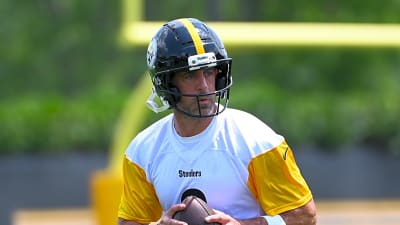Fans tuning into the Dutch-language coverage of the World Matchplay on PDC TV were quick to notice something off about the commentary. The voices sounded robotic and unnatural — and that’s because they weren’t real people. Instead, the PDC has been trialling artificial intelligence to simulate live commentary, converting English broadcasts into localised audio using AI-generated voices.
The initiative is part of an experiment by the PDC to expand their global reach, offering localized commentary in multiple languages without relying on live human broadcasters.
“The Voices Are Mimicked”
Jamie Banks, who oversees PDC TV’s broadcast operations, explained the technology in an interview with NU.nl. “The voices of the commentators are mimicked,” said Banks. “As a result, they have a more human tone than traditional computer-generated voices.”
Despite these advancements, viewers quickly picked up on the lack of authenticity. The AI voices may sound human-like, but they fall short in delivering the passion and spontaneity that define live sports commentary. With little emotional range or nuance, the AI delivery was often likened to digital assistants like Siri or Google Assistant.
“Sound Is Crucial to the Experience”
Media researcher Esther Hammelburg of the Amsterdam University of Applied Sciences says audio plays a far more important role in live sports than most viewers realise. “We often underestimate how much sound contributes to the viewing experience,” she said. “This is especially true during live sports broadcasts, where commentary helps create tension, emotion, and context.”
For now, major broadcasters aren’t following suit. At ESPN, for instance, human commentary remains the gold standard. “Sport is emotion, and match commentary is still very much a human task in our view,” a spokesperson told NU.nl. “There are too many moments during a game that require judgement and explanation. Was the referee’s decision correct? What does the rulebook say? What’s going on in the crowd? These are things AI simply can’t interpret with the same depth.”
A Tool for Global Growth
While human broadcasters remain central to PDC TV’s coverage, Banks sees AI as a powerful tool for expanding the sport’s international reach — especially in emerging markets.
“In some countries like Italy, the local commentators have become celebrities in their own right, so it makes sense to stick with them,” Banks said. “But this technology allows us to offer commentary in far more countries than would otherwise be possible.”
Even ESPN acknowledged that the PDC’s approach could pave the way for multilingual coverage in the future — but stressed that it's not planning a shift toward AI just yet. “We’re monitoring developments closely,” the network said.
Hammelburg also highlighted cultural considerations, noting that commentary styles vary greatly across countries. “In some cultures, commentators get excited about every tiny moment, while in others, the tone is more subdued,” she explained. “And when we’re watching the Dutch national team, we expect a Dutch perspective — not just in language, but in passion and interpretation.”
More must-reads:
- Surprising update emerges about Jayson Tatum's recovery
- Brewers star's injury worse than initially thought
- The '250-strikeout MLB seasons' quiz
Breaking News
Trending News
Customize Your Newsletter
 +
+
Get the latest news and rumors, customized to your favorite sports and teams. Emailed daily. Always free!








